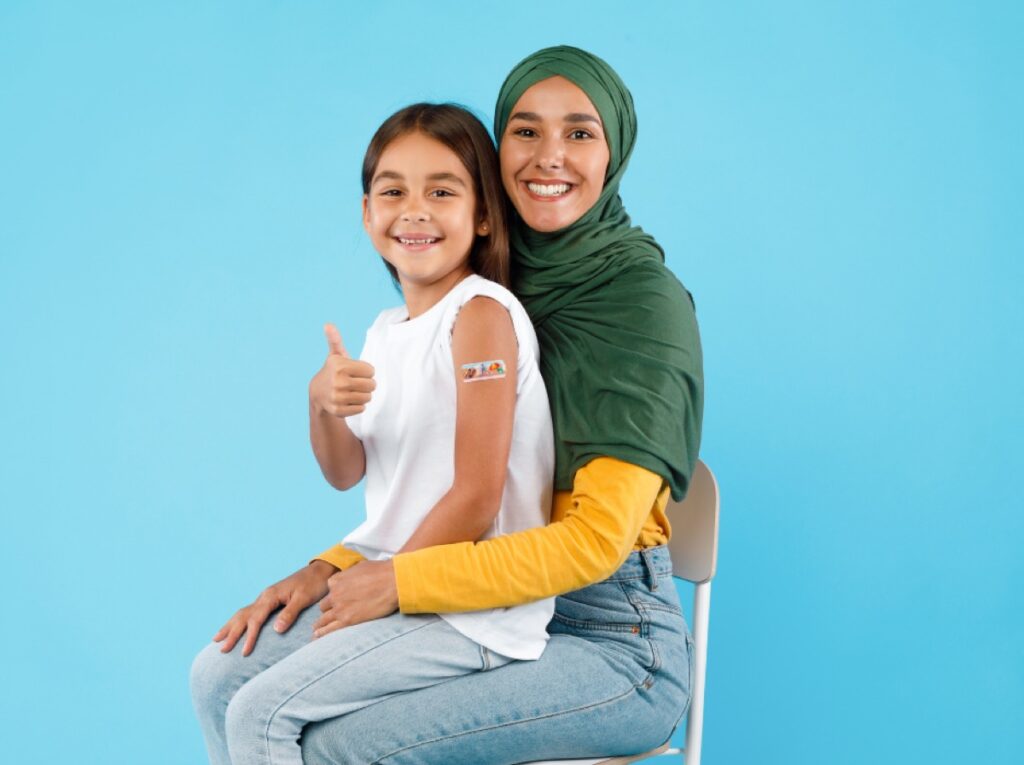
Whether you’re planning a trip, attending a family get together or are set on enjoying the great outdoors this summer, we need to talk about vaccinations says Dr Donald Palmer.
What are vaccines?
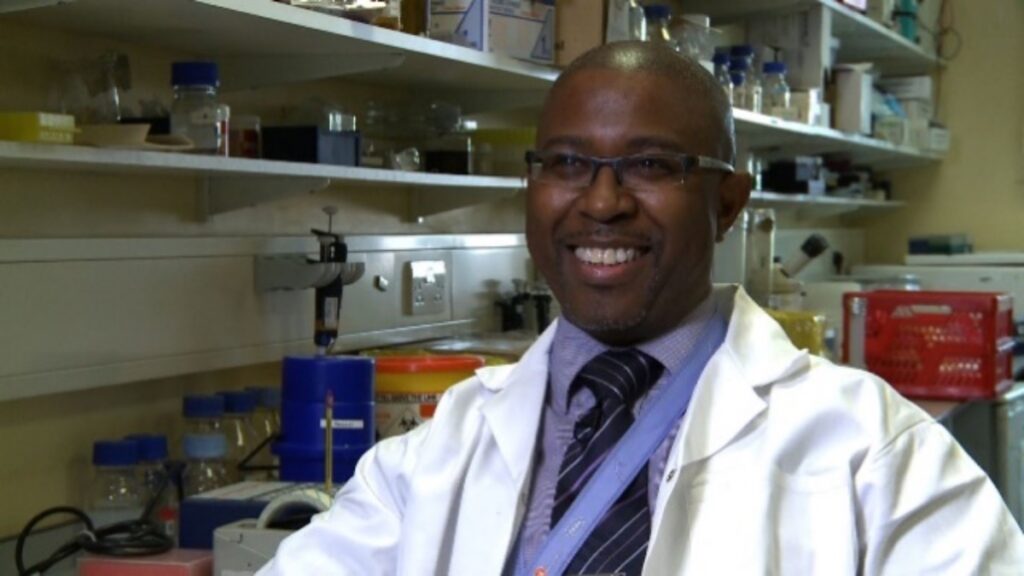
“A vaccine is something that teaches our immune system to recognise and defend itself against a virus,” says Dr Palmer, an Associate Professor of Immunology and ‘Education and Careers Secretary’ of the British Society for Immunology.
“Different vaccines help to train your body to defend you against different diseases. So, when you come into contact with that disease, your immune system will make the antibodies and cells needed to get rid of the bacteria or viruses causing it.”
This might mean that you do not catch that disease, or if you do, it’s not as serious because your immune system is more prepared to deal with it.
How do we know vaccines are safe?
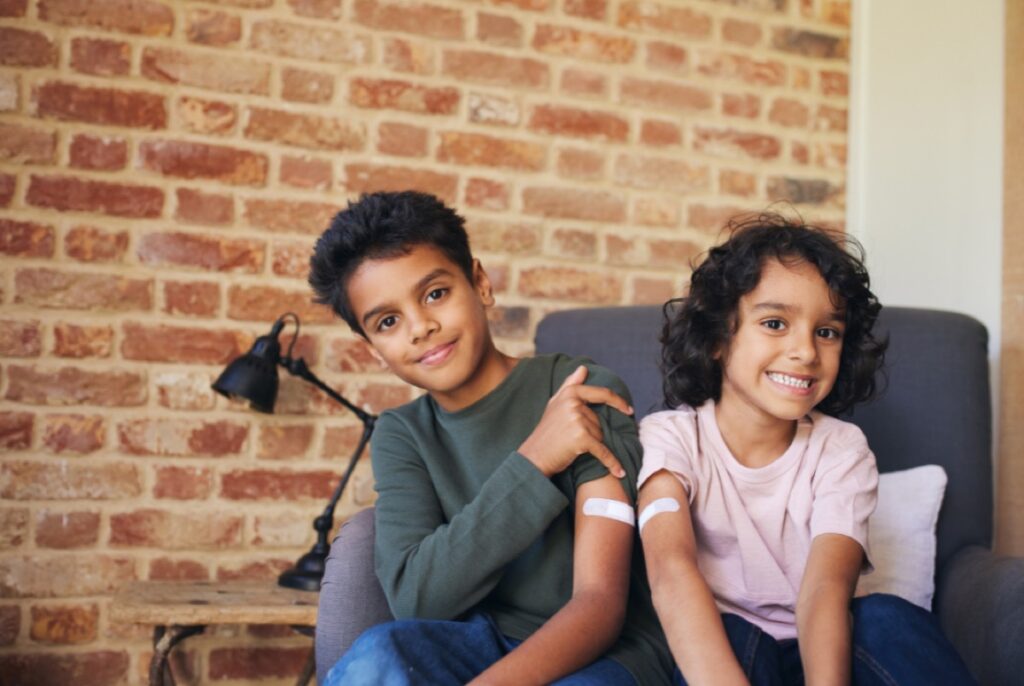
Vaccines work in different ways and have different ingredients. Many, including the COVID-19 vaccine, do not contain the live virus. So there’s no risk of catching COVID from them or of passing it on to others.
Some people get a sore arm from the injection, or might feel tired, achy or get a headache, but any side-effects are usually mild and generally don’t last for long.
The full list of ingredients in a specific vaccine can be found on the Medicines and Healthcare products Regulatory Agency website. All vaccines used in the UK have gone through a series of strict tests on thousands of people – of different ages, gender and heritage – before they are offered to the general public.
Dr Palmer said another question he is often asked is how the COVID-19 vaccines could be developed so fast compared to many other vaccines. “Owing to the worldwide need for a vaccine, everyone involved in the regulation of medicines came together to deliver the approval process, and same tests, more speedily.
“The other important factor is that researchers already knew a lot about Coronavirus and how to target it. So, they weren’t starting from scratch and a lot of the information was shared amongst researchers.”
Are vaccines new?
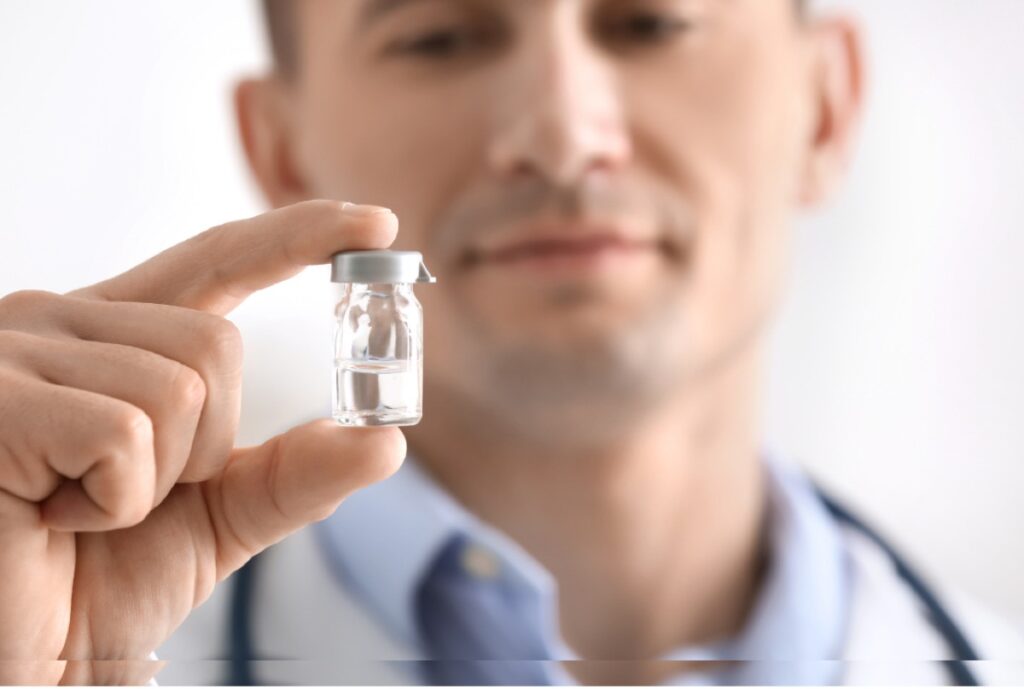
Vaccines have been in use, for centuries. The world’s first vaccine, the smallpox vaccine was introduced in 1796 by British surgeon Edward Jenner, and the last person to naturally catch smallpox was in 1977.
What are travel vaccinations?

To be effective, some vaccinations are best taken a few weeks before you travel.
Some countries require proof that you have been vaccinated against specific diseases before you can enter them. For example, some countries require proof that you’ve been vaccinated against yellow fever, especially if you are travelling from a country where there is a risk of getting yellow fever.
The GOV.UK website has information about entry requirements to different countries. To be effective, some vaccinations are best taken a few weeks before you travel. Also, if you are planning a trip abroad, your GP practice can give advice about any medication you need to take with you.

What other vaccinations are on offer?
In addition to travel vaccines, there might be routine ones you have missed, for example, the vaccine offered to people in their 70s to protect against shingles, or the one against measles, mumps and rubella offered to children and adults. Your GP practice can check if you’re unsure you, your children, or another family member have had all of their routine vaccinations, or to book any you’ve missed. It’s also important to have all the doses you’re offered for the best protection.
“For children” advises Dr Palmer, “another way to check which vaccination they have had, is to read their child health record also known as the red book. A full list of the vaccinations provided by the NHS and when to have them, is also available on the NHS.uk website”.
Is it too late to protect myself against COVID-19?

No, you have until 30 June 2023 to get the COVID-19 vaccine for yourself or family if you or they have:
- only ever had one COVID-19 vaccination, or not had any at all
- not had a spring vaccine yet and you are either aged over 75, aged over five with a weakened immune system, or live in a care home for older adults.
But it is important to act quickly – from July, the COVID-19 vaccine will only be offered to people at increased risk from the virus.
Why are some vaccinations given more than once?
“Some vaccinations such as the COVID-19 vaccine, MMR to protect against measles, mumps and rubella are given in more than one dose. The additional doses of a vaccine – or the booster dose – gives long-term protection against getting seriously ill from a specific disease” says Dr Palmer.
“This might be due to a high possibility of our immunity against a specific virus fading, or the disease itself might change, so another vaccine is offered that better tackles the virus.
”To book your COVID-19 vaccine use the NHS App, or book online at nhs.uk/COVIDVaccination or call 119 for free. To get advice on other vaccinations you, your child or a family member have missed, talk to your GP practice.
Why vaccines are important if you have a longterm condition – Kirit Mistry
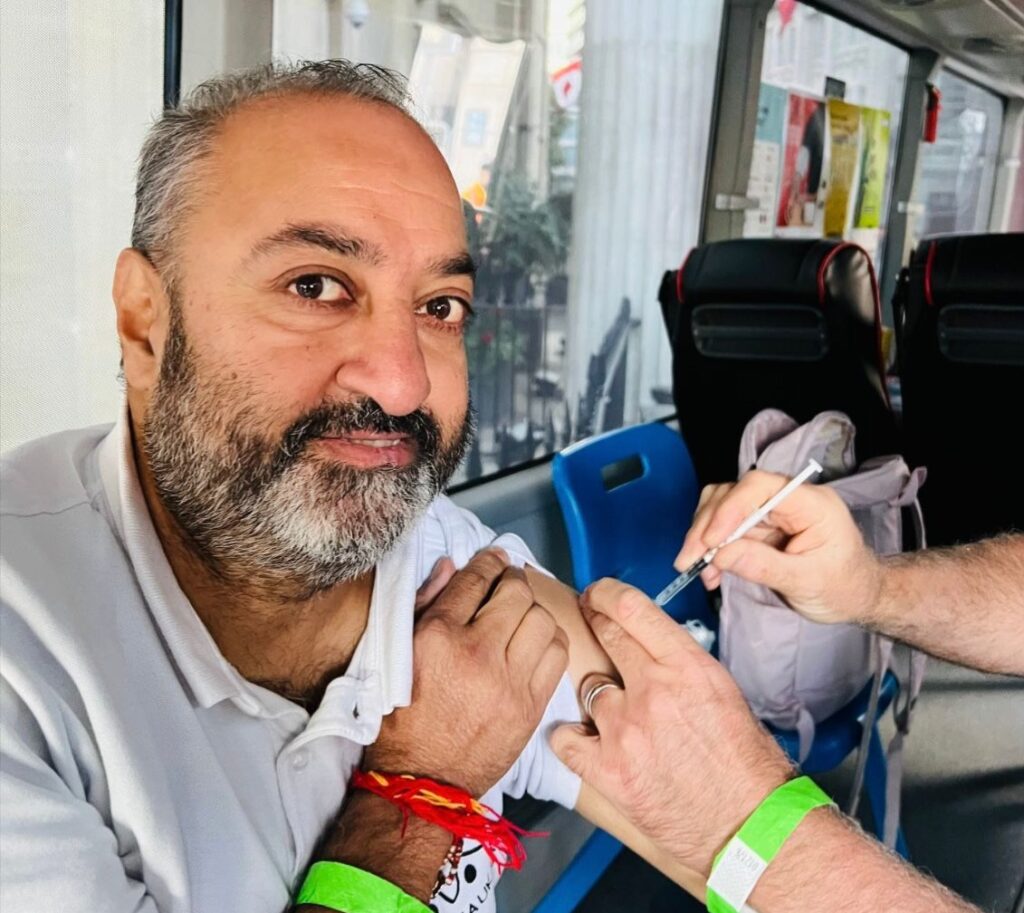
Kirit Mistry is a health equalities and diabetes community champion from Leicester and is the founder of South Asian Health Action.
“I have had type 2 diabetes for over 13 years and found the most important way to control my condition is with careful self-care and management. I follow medical advice, try to eat a healthy diet and make sure I stay active. And taking medication at set times of the day helps me to manage my blood glucose levels.
Diabetics are vulnerable to infections which can make us seriously ill and takes us longer to recover, so vaccines are really important to protect me and family. Every year, my GP practice invites me for the flu vaccine. And over the last few years, they invite me for the seasonal COVID-19 vaccines. I make sure I book these in as soon as they’re available as I understand that without them, the risks of getting seriously ill is greater.
My twin brother also has type 2 diabetes and when he caught COVID in 2021, he had to stay in intensive care for almost 2 weeks. Thankfully he recovered and although he still has some long COVID symptoms, we both enjoy the things we used to, including travel and staying active. I know misinformation prevented many people from making the right choices about vaccines. If you’re unsure about anything, I recommend speaking with a health professional and ask your questions before it’s too late – 30th June will be the last chance for most people to get the COVID-19 vaccine.”















